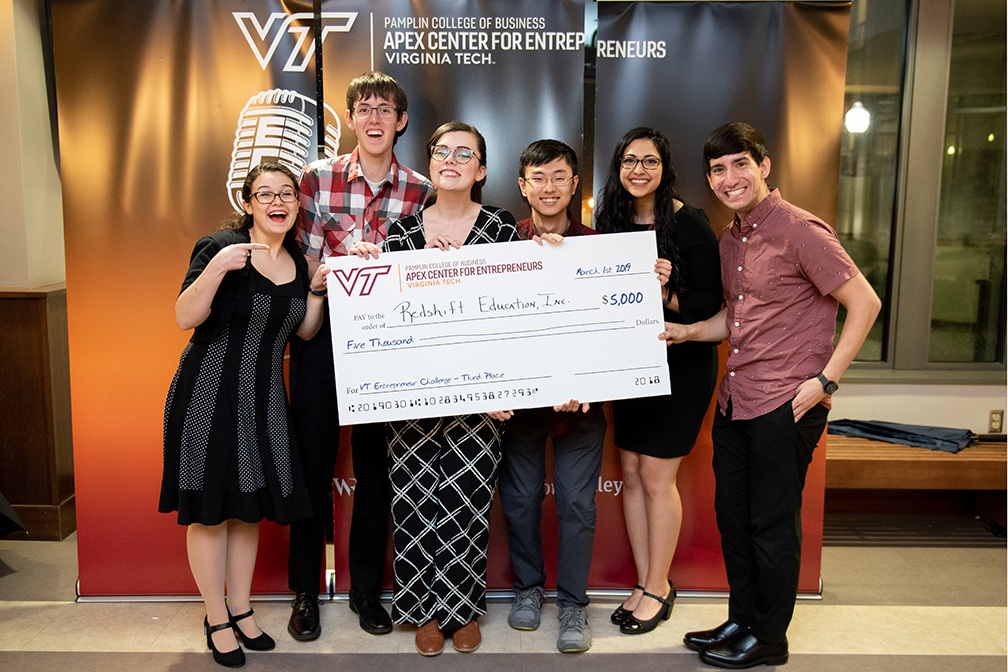Tech Products and Services Win Top Prizes at Entrepreneur Challenge
March 5, 2019

Engineering, architecture, and liberal arts students swept the Virginia Tech Entrepreneur Challenge, where 10 finalist teams that included students from business and other disciplines pitched their business ideas for a shot at prize money.
The $15,000 first prize went to Maroon Assistive Technology for its concept of a passive lift-assist exoskeleton that supports the back and core of users while they perform lifting motions. The team comprises Andrew Bocklund, Jack Geissinger, Taylor Pesek, and Tim Pote, all from the College of Engineering.
The $10,000 second place went to Rendyr, which pitched a concept for a portable laser cutter to increase access to rapid prototyping technology for designers. The team comprised Martin Angst, Kaelum Hasler, Reid Holbert, and Callan McGill, from the College of Architecture and Urban Studies, and engineering majors Elijah Hodges and Liam Lawrence. Rendyr also won the $3,000 Fan Favorite award.
The $5,000 third-place winner was Redshift Education for its concept of building project-based learning content in virtual reality “to make learning creative, collaborative, and relevant for the 21st century.” Team members were Redshift chief executive officer Maria Jernigan, who graduated in 2018 with a double major in philosophy and Spanish; Taylor Carroll, an art major; engineering majors Kiran Bagalkotkar, Mark Carman, and Jooyoung Whang; and Vince DiNardo, a double major in music and computer science.
All 10 finalist teams received a $1,000 prize to get their new business off the ground. Through the event, they were also offered such resources as mentoring, legal assistance, and funding opportunities.
The challenge was hosted by the Apex Center for Entrepreneurs, based in the Pamplin College of Business, in partnership with 1901 Group and other sponsors. The event, like other Apex Center programs, was open to all Virginia Tech students. The competitors, largely current undergraduate and graduate students, included alumni who graduated within the past year.
“Hands-on, experiential events like the Entrepreneur Challenge are an important tool in teaching tomorrow’s business founders and employees the process to move a concept forward through cross-functional teams,” said center director Sean Collins.
“The challenge promotes action. It allows students to practice entrepreneurship and obtain a valuable understanding of how their ideas and hard work can change the world for the better,” Collins said. “Thank you to 1901 Group and all our sponsors and supporting alumni for their vision and generous support of this event.”
Written by Sookhan Ho





